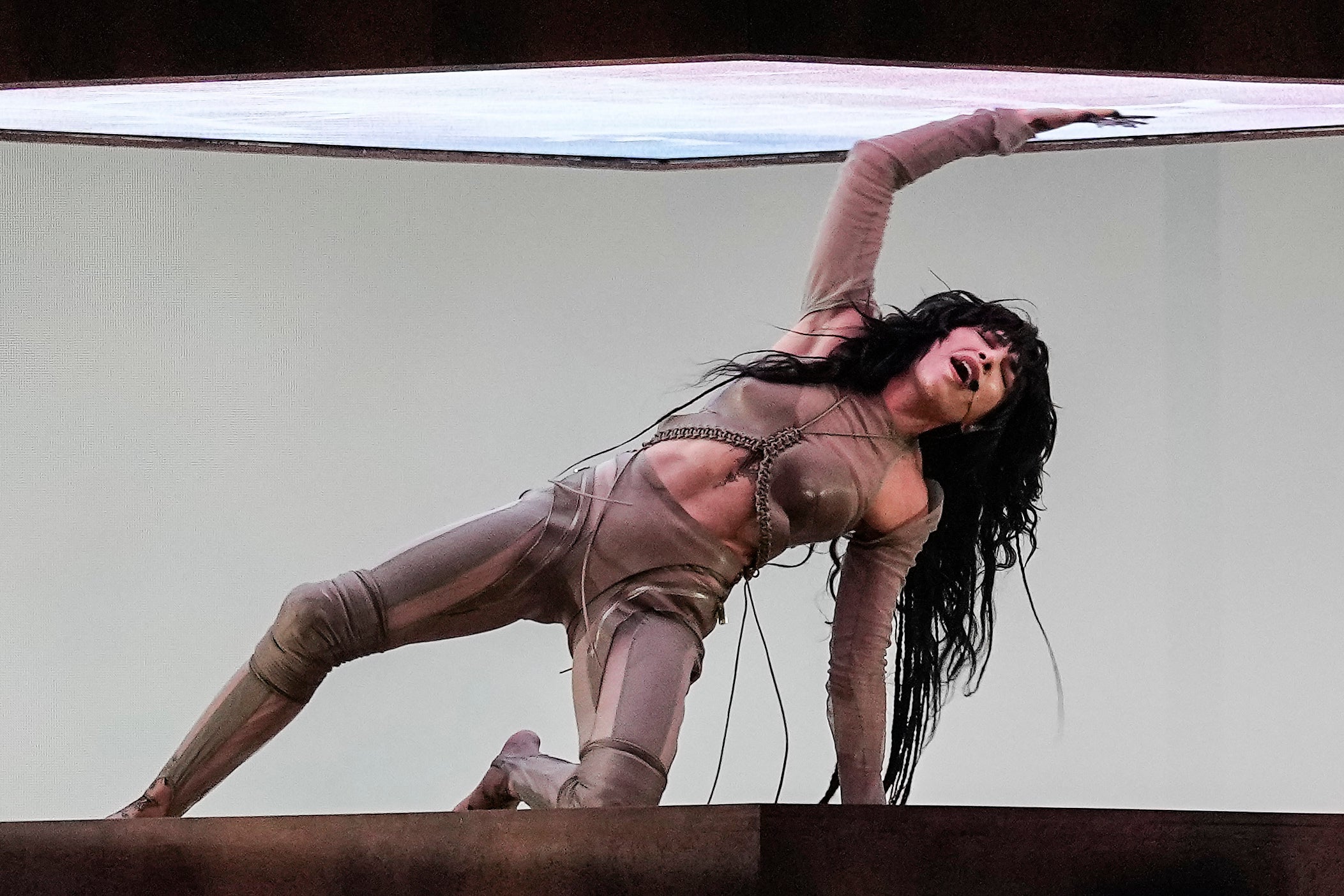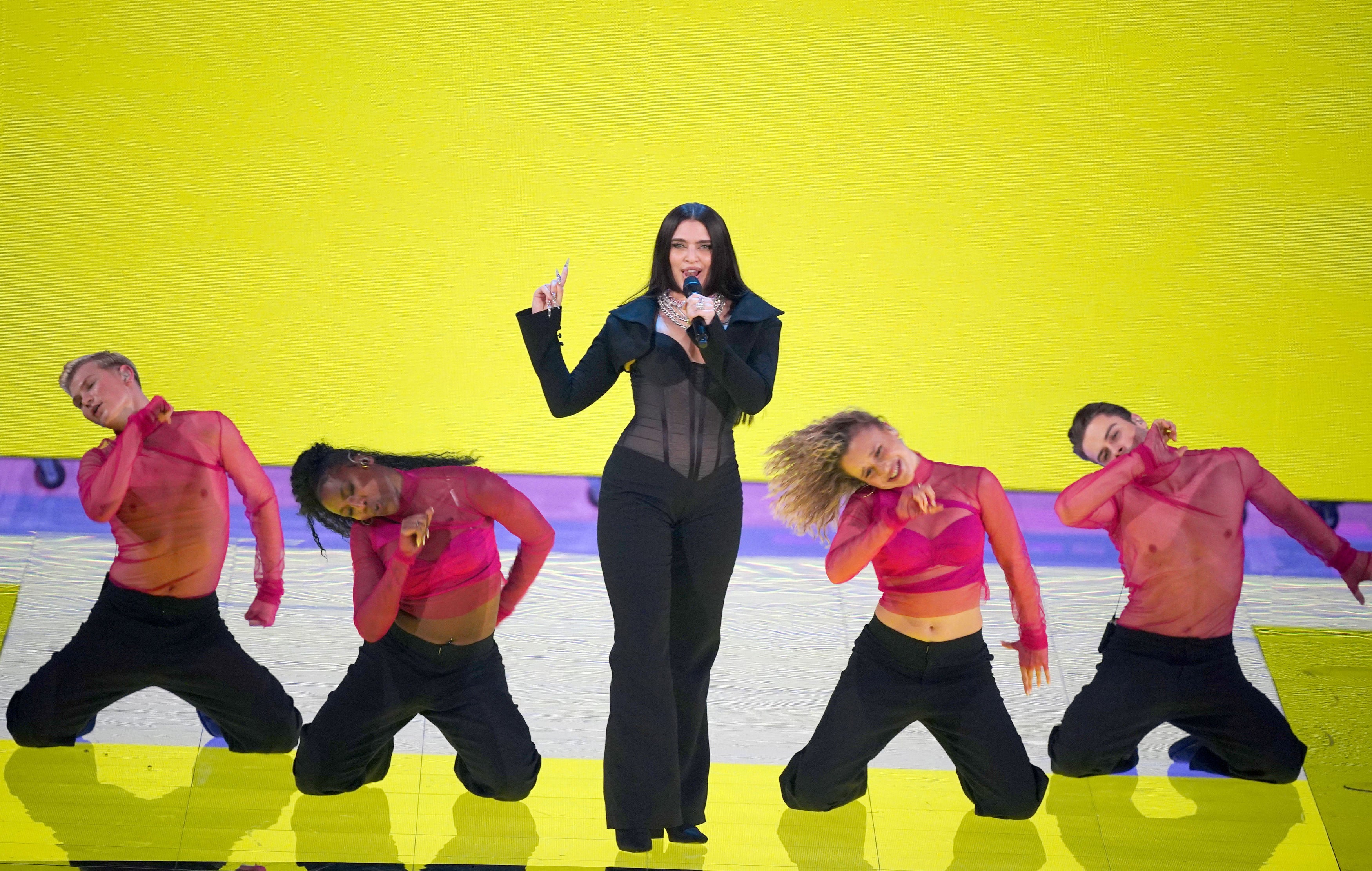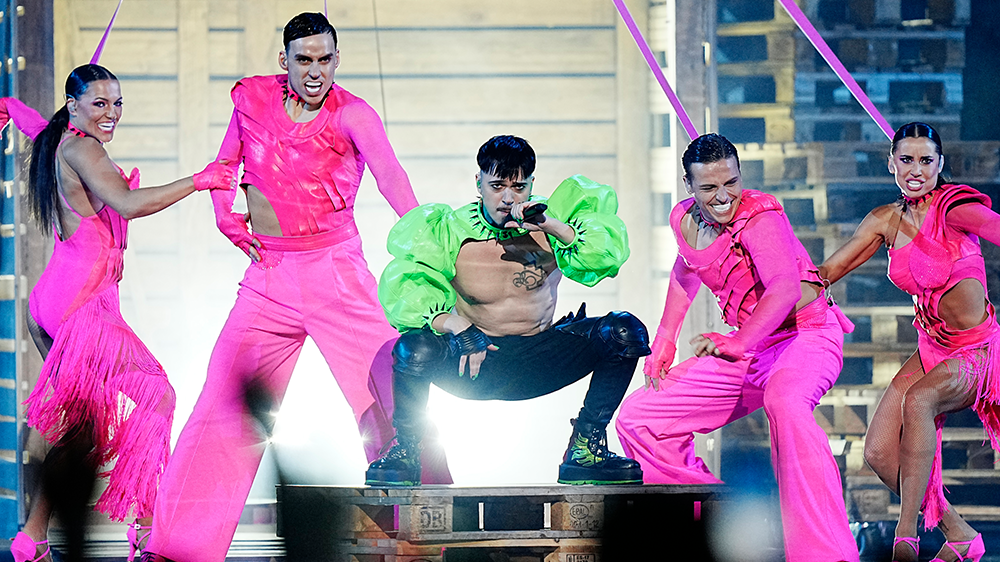Liverpool’s grand final breaks Eurovision viewing records
BBC One saw a peak audience of 11 million viewers tune in on Saturday night 13 May
Your support helps us to tell the story
From reproductive rights to climate change to Big Tech, The Independent is on the ground when the story is developing. Whether it's investigating the financials of Elon Musk's pro-Trump PAC or producing our latest documentary, 'The A Word', which shines a light on the American women fighting for reproductive rights, we know how important it is to parse out the facts from the messaging.
At such a critical moment in US history, we need reporters on the ground. Your donation allows us to keep sending journalists to speak to both sides of the story.
The Independent is trusted by Americans across the entire political spectrum. And unlike many other quality news outlets, we choose not to lock Americans out of our reporting and analysis with paywalls. We believe quality journalism should be available to everyone, paid for by those who can afford it.
Your support makes all the difference.Liverpool’s Eurovision Song Contest was the most watched grand final in history.
The city hosted the competition’s final event at its M&S Bank Arena on Saturday night (13 May).
It was a lively affair, with plenty of memorable moments including a history-making victory from Sweden’s Loreen who became the second ever artist to win Eurovision twice, and a royal cameo from Kate Middleton.
Follow along with all the Eurovision updates at our live blog
The live broadcast on BBC One saw an average of 9.9 million viewers, the BBC has said.
Viewing figures reached a peak during Loreen’s performance, with 11 million people tuning in to see the Swedish star sing her winning track “Tattoo”.
Saturday night’s (13 May) Eurovision broke the previous ratings record, which was achieved in 2011 when 9.5 million people watched UK entry Blue compete.
Last year’s contest – hosted in Turin, Italy after the 2021 event was won by Italian rockers Måneskin – was watched by 8.9 million people.

Speaking about this year’s record-breaking figures, BBC’s director of unscripted content Kate Phillips said: “What an incredible contest. It was unforgettable, unmissable event television on a scale never seen before, delivered by the BBC to viewers across the UK and millions more watching around the world.
“Sweden took home the trophy in spectacular style and 2022 winners Ukraine were at the heart of the show.”
The UK hosted Eurovision 2023 on behalf of last year’s winners, Ukraine, who were unable to do so due to the ongoing invasion of their country by Russia.

Phillips continued: “Liverpool welcomed the world’s biggest singing competition with open arms and embraced it beyond all of our expectations.
“The fact that so many millions of people tuned in reflects just how significant Eurovision has become and truly underlines the theme behind this year’s contest, United by Music. We really hope we did Ukraine proud.”
Sweden emerged victorious after a close race with Finland whose entry, Käärijä, finished in second place, with Israel’s Noa Kirel following behind in third place.

It was a less successful year for the host country, with the UK unable to replicate the 2022 success of Sam Ryder who finished in second place with his hit song “Rocket Man”.
North London singer-songwriter Mae Muller impressed viewers with her performance of “I Wrote A Song” but failed to clinch the points in the public and jury votes, coming in second-to-last place.
Muller has been flooded with messages of support following the competition, and has since addressed the disappointing results in a social media statement.




Join our commenting forum
Join thought-provoking conversations, follow other Independent readers and see their replies
Comments